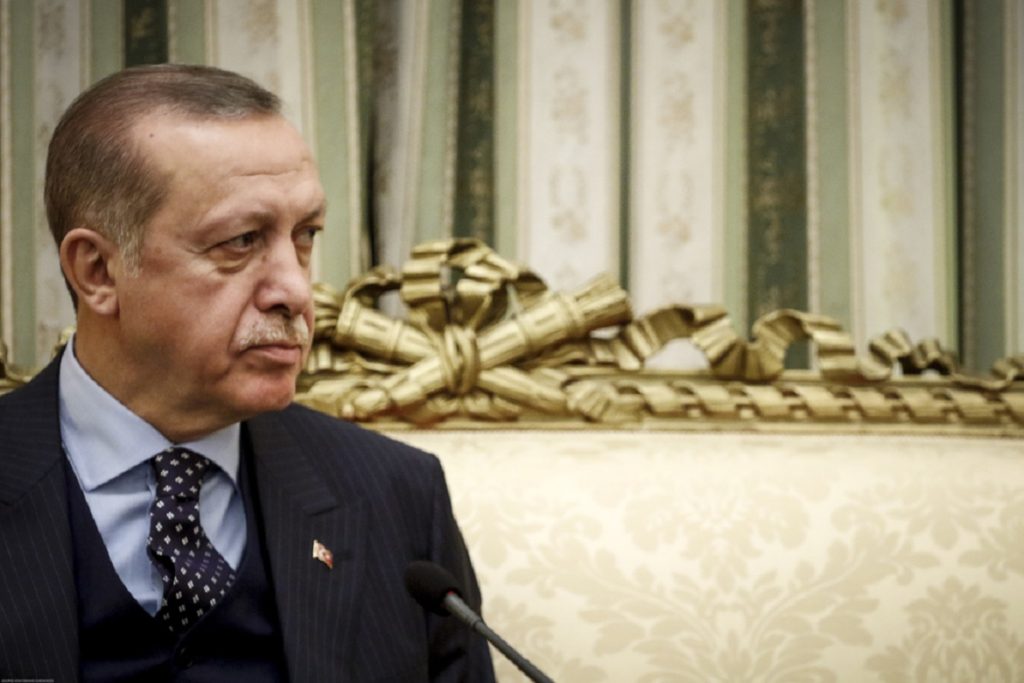It seems the element of instability is always present in the middle east. From the Palestinian issue to the Syrian civil war, the region is constantly facing security and geopolitical challenges. Also, it seems that there is no country that is immune from this instability. Turkey is no exception and the recent events just show that the situation in this regional power is heading into dark clouds.
President Erdogan has reaffirmed himself as the leader of Turkey after his party of justice won presidential and parliamentary elections that will extend his powers and possibly his rule for the next decade. And while Erdogan is looking to develop its own national policy, many of Turkey’s NATO and EU allies are openly confronting his decisions and activities in the region. In this article, we will analyze the future geopolitical challenges of Turkey.
Complex Relation with the West
As Erdogan came to power in 2003, the Euro-Atlantic community saw him as a young leader that had liberal tendencies. Moreover, many in the European Union saw the new Turkish administration as a possible bridge between the Western civilization and the Muslim world. It was a good start that promised a lot. However, soon things started to head in an unknown direction. As president Erdogan was enforcing and increasing his power, the relations with the West were going downhill. Although Turkey is a NATO member and is a candidate state to join the EU, it’s president has been a vocal critic of both. The recent arms deal for the S-400 missile defence system from Russia has also prompt a swift reaction from NATO and even the U.S Administration has threatened with sanctions. Moreover, the various gas pipeline and nuclear reactors deals with Putin has ringed the alarm in Brussels about a possible geopolitical shift of Turkey. Combined with the allegations of human rights issues and autocratic rule, resulted in the European Union has strained its relations with Turkey.
Nevertheless, Europe needs Erdogan as Turkey is now the main wall protecting the EU from the flow of migrants and refugees after the two sides struck the 2 billion euro agreement. The Turkish role in this global challenge is very important as it had an optimizing effect on the process of tightening the regional security. The deal with Turkey enabled the EU to close the so-called Balkan route for migrants. Nevertheless, on many occasions, Erdogan has threatened the EU that will open the gates to Europe if the EU is meddling in Turkey’s domestic affairs.
The overall conclusion is that the EU will maintain so-called interest-based relations with Turkey since a possible larger political confrontation can result in another migrant and refugee crisis.
The Syrian Conflict
Syria is in the sphere of interest of Turkey as it has been part of the Ottoman Empire for several centuries. At the beginning of the Syrian civil war, Turkey, the US and the EU had the same goal of toppling the Assad regime. Moreover, the allies have actively supported the so-called moderate opposition groups with the goal of regime change.
However, as the conflict was going through different stages and the emergence of the Kurdish militia, put the US and Turkey on two different sides. After the dissolution of the so-called moderate rebels groups, the US policy shifted its focus towards supporting the Kurdish militias. Moreover, the Syrian Democratic Forces and other Kurdish groups were the spearheads in the fight against ISIL. In the same time, Turkey sees the Kurdish armed groups as an offshoot of the PKK and have started an armed campaign against them.
The American support for the Kurds has strained the relations between these two NATO powers. An additional problem is the fact that the US is not extraditing the Islamic clerk Fatullah Gulen who Erdogan blames to be the mastermind behind the failed coup in 2016. Moreover, the recent spat with the Trump administration over the arrest of a priest can be seen as a symbolic act of Turkish defiance.
The second challenge for Turkey in Syria is the resurgent Assad government. With the latest gains in Dara, the Syrian Army has set its sights on the Idlib province which is the last rebel stronghold in the country. To further complicate the tense situation, the Turkish Army has established observation bases at the front line dividing both sides. As the Syrian Army is preparing for a major Idlib offensive, Turkey sees this move as breaking the Astana agreements. The potential Idlib offensive can have far bigger political consequences as it may strain Turkey relations with Russia and Iran (as the other two guarantors of the Astana agreement).
The potential for this scenario to occur is highly likely as the Syrian Arab Army is winning the war and will soon kick off the Idlib offensive. This will complicate the situation for Turkey and its regional interests in Syria.
Authoritarian Rule
And while president Erdogan won the election with close to 53% of the votes and secured a new term, there are more elements that complicate this story. Last year, Erdogan held and narrowly won a referendum on proposed changes in Turkey’s constitution. These amendments are in force following the recent elections and are characterized with significantly increased presidential powers. To be more specific, the Turkish president will be able to appoint public officials including ministers and judges and control the army and the police. On the other side, the parliament power will be significantly decreased. These changes will implicate a dictatorship ruling style. Combined with the mass arrest following the failed coup in 2016, these changes can initiate an internal unrest in the Turkish society.
On a final note, we can conclude that Turkey is facing several geopolitical and security issues. Combined with the internal power struggle and the autocratic Erdogan, the future of Turkey might not be as bright as expected.







